Did you know that today, only 37% of sales professionals’ time is spent building connections with prospects and customers? As a business development specialist with over 20 years of experience, I can definitely say that we have a huge pile of manual, low-value work to do, which often takes the lion’s share of our time. Through optimizing internal operations, we get the chance to focus on high-profile tasks and communication with the clients.
In fact, Hubspot found that AI applications allowed to save 2 hours daily in meeting scheduling, note-taking, outreach creation and editing, as well as CRM data entry. These solutions also help in training and onboarding new employees, allowing the company to grow its sales team.

Moreover, managers leveraging AI sales automation gain a competitive edge. Data-driven insights and streamlined processes unlock new levels of productivity and deal closure rates. Are you ready to transform your performance with intelligent systems? Let’s explore how this technology can boost your organization’s ROI and drive revenue growth.
Table of Contents
What is AI Sales Automation? Mechanisms and Applications
Let’s start by defining artificial intelligence automation and how it works. This approach infuses AI into various aspects of the sales cycle. Its goal is optimizing tasks, generating insights, and personalizing buyer interactions. Here’s a breakdown of how technology is used in sales:
- Machine learning. ML algorithms analyze vast customer data. This includes demographics, online behavior, and past dialogues. The information defines lead scores that predict conversion likelihood, guiding teams’ focus.
- Chatbots. Natural language processing (NLP) enables bots to engage with prospects. They qualify leads, answer questions, and schedule demos, securing 24/7 availability.
- Generative AI for content creation. Large language models (LLMs) assist with personalized emails and crafting product descriptions. They can also produce initial drafts of proposals.
- Deep learning for churn prevention. It examines behavioral signals such as reduced engagement, negative feedback, or changes in purchase patterns necessary for comprehensive churn analysis. Businesses pinpoint at-risk clients and intervene with targeted suggestions or customized outreach.
- Call transcript review for coaching. NLP analyzes customer interactions. It identifies areas for improvement, offering insights on objection handling and communication style.
- Sentiment analysis in interactions. AI-based systems gauge a prospect’s emotions by examining their language and tone. They can check emails, chats, or calls, allowing for more tailored responses.
Overall, AI in sales empowers teams to be more productive and achieve better results. Let’s delve into specific challenges niche specialists face and how the technology offers solutions for a more efficient selling process.
Tired of missed opportunities and slow response times? Deploy an AI sales assistant for 24/7 availability. Personalize interactions, qualify leads, and elevate your customer experience with the power of AI.
GET IN TOUCH
AI-Powered Solutions for Common Sales Roadblocks
CRM Inconsistency
Inconsistent data entry and poor quality of information plague many management systems, creating inaccurate customer profiles. The lack of reliable records makes it difficult for sales teams to accurately prioritize leads or personalize their outreach. The result? Missed opportunities and wasted effort.
AI-based data cleaning identifies and corrects inconsistencies, ensuring accurate prospects profiles. Additionally, AI in sales CRM fills in missing fields. These enriched, precise details empower salespersons to target and engage the most promising leads effectively.
Time-Consuming, Repetitive Tasks
Routine responsibilities consume a shocking amount of a sales representative’s work hours. In fact, 72% of their week is eaten up by non-selling duties like data entry and deal management. This prevents professionals from focusing on the core activities of relationship-building and closing deals.
By streamlining repetitive processes, AI for sales automation frees managers to focus on strategic interactions. NLP can draft initial emails or suggest responses, further enhancing productivity. Studies even show that 80% of sales pros say AI-powered tools help them spend less time on manual tasks. Such optimization translates into significant savings – as much as 2 hours and 15 minutes each day.

Slow Response Times
Every delayed reply is a potential missed sale. In today’s competitive market, clients won’t wait around for slow service. Frustrated buyers equal damaged brand reputation, a risk no business can afford.
A great solution that is available 24/7 and addresses initial queries is a chatbot — especially in AI automotive sales environments where buyers expect instant answers about availability, pricing, and test drives. This tool can also gather lead information around the clock. As a result, the team focuses on complex deal-making and closing high-value opportunities. Eventually, the company ensures a seamless and satisfying customer experience. According to the research, 35% of managers report increased buyer loyalty thanks to AI-powered sales automation.
Lost Upsell Opportunities
Pinpointing clients most receptive to upsells and cross-sells while ensuring the timing doesn’t feel intrusive can be tricky. Without deep buyer insights, sales reps miss valuable chances to increase revenue. They often lack the data to craft highly customized offers that resonate with existing consumers. This ultimately discourages customers from returning.
AI in sales provides the missing piece of the puzzle. ML algorithms scrutinize purchase patterns and user behavior. This identifies ideal moments for recommending complementary items or services. Based on past buys and preferences, AI engines provide personalized recommendations. Targeted suggestions significantly amplify the success rate of revenue-generating activities. Moreover, studies show this tactic translates to more selling time – 79% of representatives using AI report increased efficiency.
Get expert guidance on developing chatbots for streamlined eCommerce experiences.
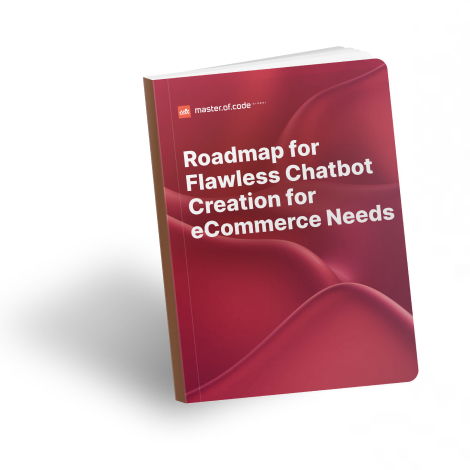
Marketing-Sales Disconnect
Another challenge hindering effective operations is the communication gap. Lack of alignment creates considerable friction. It results in unqualified leads passed to sellers or nurtured prospects who are ready to buy not receiving timely follow-up. AI in sales offers powerful tools to fix this problem, a benefit backed by research – 27% of managers report that the technology has improved collaboration within their company.
Machine learning for lead scoring aligns both teams with a data-driven qualification system. Analyzing behavior across channels, the algorithm gauges intent and prioritizes the warmest opportunities. Based on historical conversion data, it even suggests optimal next steps. This streamlines the evaluation and handoff process, empowering both units to work more efficiently.
Unengaged Leads Go Cold
Understanding each prospect’s unique stage in their journey is also crucial for success. Yet, generic nurture campaigns often fail to provide the individualized care buyers crave. Inconsistent follow-up efforts further erode engagement, leading to a decline in their interest.
Artificial intelligence offers a more customer-centric approach. Dynamic segmentation enables tailored initiatives that resonate with leads at different phases. It suggests personalized content and automates the next steps with optimal timing, cultivating trust among potential clients. Plus, AI analyzes data, helping managers pinpoint the right moment to intervene directly. Such an approach translates into developing meaningful relationships with prospects. This is backed by research showing that 72% of sales representatives using the technology experience faster rapport building.
We’ve explored the common challenges the technology addresses within the selling process. Now, let’s delve into the tangible advantages this innovation delivers.
12 Primary Benefits of AI Sales Automation
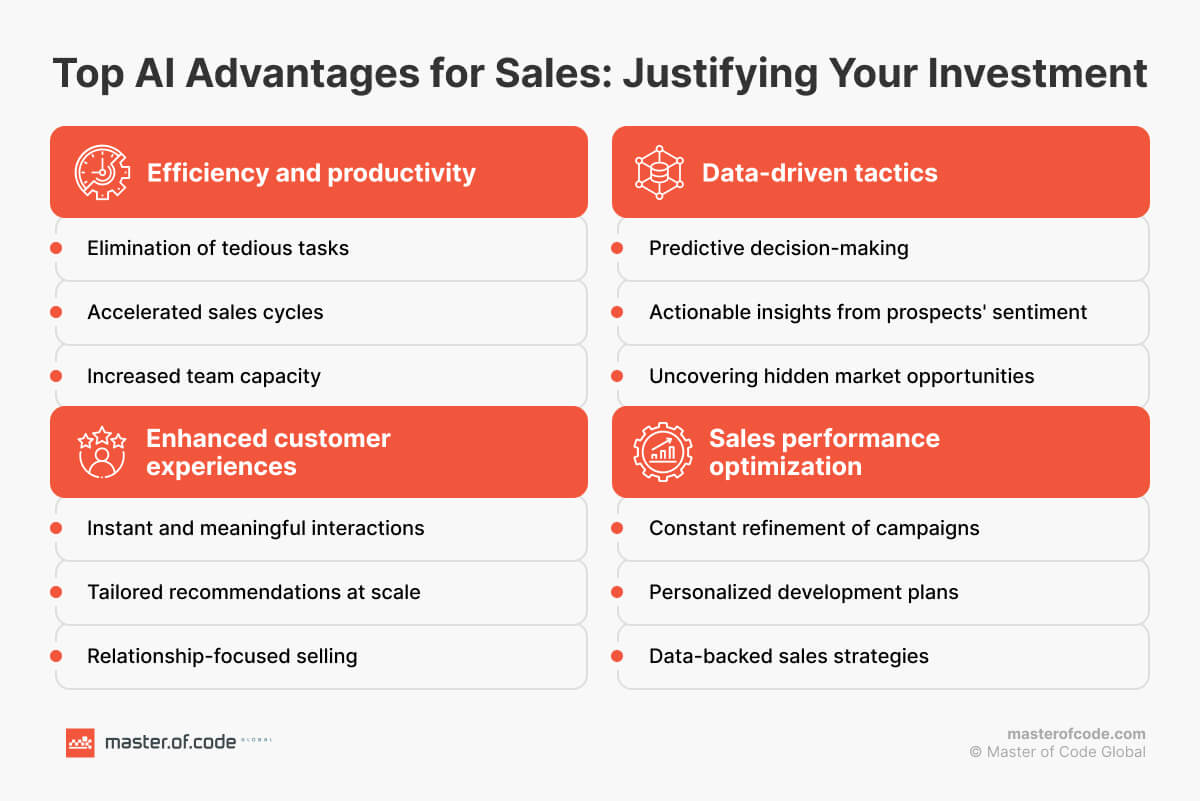
Companies pioneering intelligent solutions report remarkable gains: increased leads and appointments by over 50%, cost reductions between 40-60%, and call-time savings of 60-70%. Let’s examine how AI makes this happen:
- Enables your salespersons to manage a larger volume of prospects effectively.
- Identifies patterns and forecasts outcomes, optimizing resource allocation and targeting.
- Increases lead conversion rates and reduces time from first contacts to closed deals.
- Analyzes vast data sets to reveal niche trends and underserved customer segments traditional research might miss.
- Ensures clients receive immediate support, regardless of time or day, building trust and loyalty.
- Understands individual needs to deliver highly relevant offers and content.
- Gives sales and marketing units more chances to build authentic relationships with potential consumers.
- Provides granular insights into team performance, revealing strengths and areas for development.
- Tailors guidance to sales reps’ unique demands, boosting skills faster than generic training.
- Examines strategies, enabling constant refinement of your tactics to ensure you stay ahead of the competition.
- Improves output without proportionate growths in headcount.
- Aligns your processes to client requests, positively impacting satisfaction and long-term success.
These impressive advantages offer compelling reasons to explore AI-driven automation tools. While we’ve touched on some use cases earlier, let’s dive deeper into each of them. We’ll analyze how artificial intelligence translates benefits into real-world practice, with specific examples demonstrating its potential.
9 Ways AI Supercharges Your Sales Process
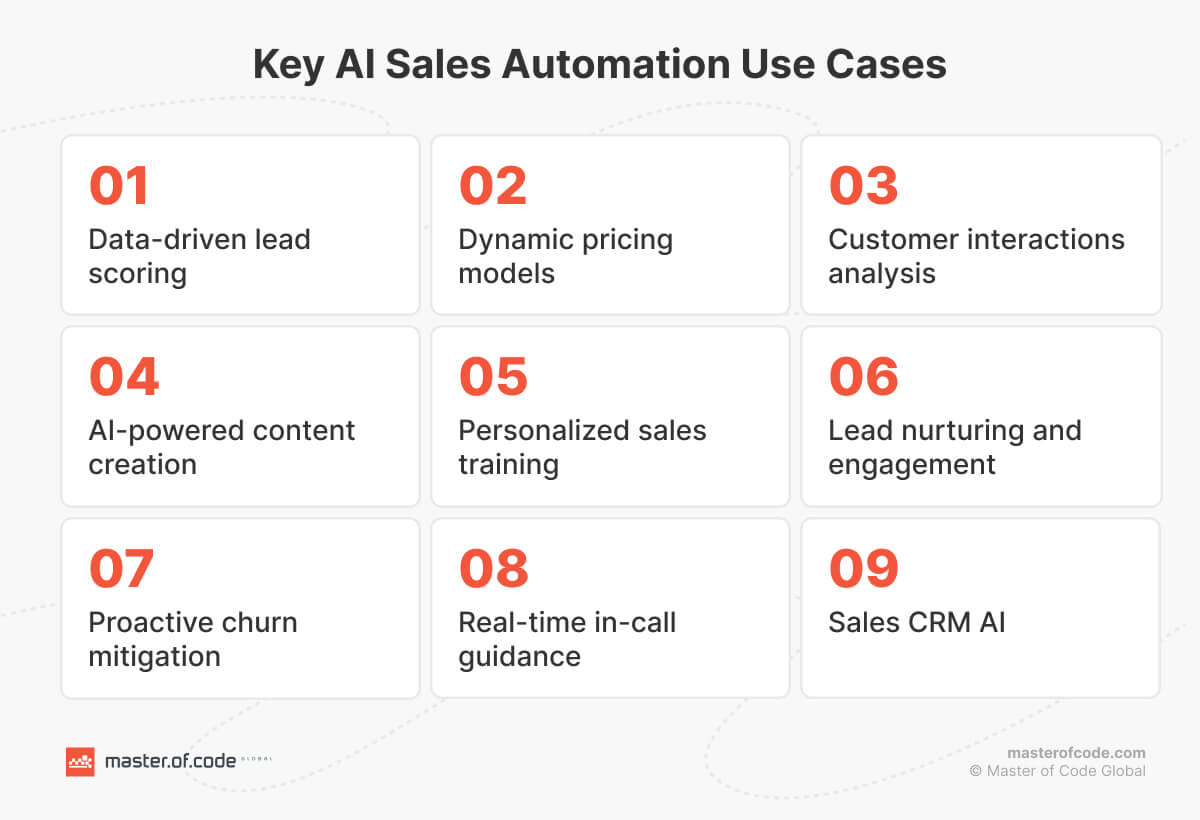
Data-Driven Lead Scoring
Machine learning turns prospect assessment into a proactive engine. By continuously analyzing data and refining scoring models, the intelligent algorithm identifies high-potential leads as they emerge. This allows sales teams to engage with the hottest prospects at the optimal moment, increasing conversion rates and driving revenue growth. Furthermore, AI goes beyond traditional methods, incorporating factors like social media activity, website interactions, and even email engagement to paint a comprehensive picture of each lead.
Razorpay’s ML-powered lead scoring system shows how effective this is in practice. They achieved impressive results, including a 50% increase in monthly GMV, a 70% reduction in team effort, and a one-month decrease in their conversion cycle.
Dynamic Pricing Models
Businesses can also use AI to optimize pricing strategies based on analyzing market trends and competitor behavior in real-time. Dynamic pricing models powered by AI help businesses optimize pricing strategies by analyzing market trends and competitor behavior in real time.
It factors in customer data, pinpointing price sensitivity and demand fluctuations. As a result, costs are adjusted dynamically, maximizing profitability while maintaining a competitive edge. Thus, with intelligent algorithms, the process is no longer static; it’s responsive, ensuring that every offer hits the sweet spot for both the seller and the buyer.
Customer Interactions Analysis for Actionable Insights
AI transforms raw conversations into a strategic roadmap. Whether on calls or in chat dialogues, conversation intelligence dissects words and phrases to uncover individual preferences and pain points. Sentiment analysis further reveals satisfaction levels, highlighting both buyer excitement and potential concerns. AI charts the digital paths that lead to successful deals, and those that don’t. This empowers sales teams to tailor their approach, customize training, and truly understand what drives prospects’ decisions.
Nordstrom’s Analytical Platform (NAP) is a compelling illustration of how raw data can be transformed into practical insights. NAP uses AI to mine communications with consumers across channels. It identifies product selections, sentiment, and the buying journey. This allows the brand to personalize their recommendations and refine services. This solution facilitates everything from inventory management to their core goal of a deeply personalized shopping experience.
Proactive Churn Mitigation
The intelligent algorithm transforms attrition prevention from reactive to preemptive. It analyzes a vast array of customer data points, uncovering subtle shifts in interactions, support tickets, or buying behavior. These hidden patterns reveal those at risk of leaving. The insights-driven approach allows for targeted interventions, maximizing retention efforts where they count the most.
Real-Time In-Call Guidance
AI automatic sales monitor conversations continuously, pinpointing customer needs and interests. Based on this live analysis, the system recommends products to simplify decision-making, relevant knowledge base articles, and even strategic next steps for the sales specialists. This empowers them to provide timely solutions and close deals with greater efficiency. Think of it as an AI co-pilot for successful calls.
Another way of adopting the technology is introducing chatbots to get instant access to company resources. The tool provides reps with the information they need to address complex questions or secure expert guidance on the spot. For example, a biotechnology brand streamlined its internal communication with a conversational agent. It allowed junior managers to quickly consult with senior colleagues, benefiting clients with faster and more accurate responses.
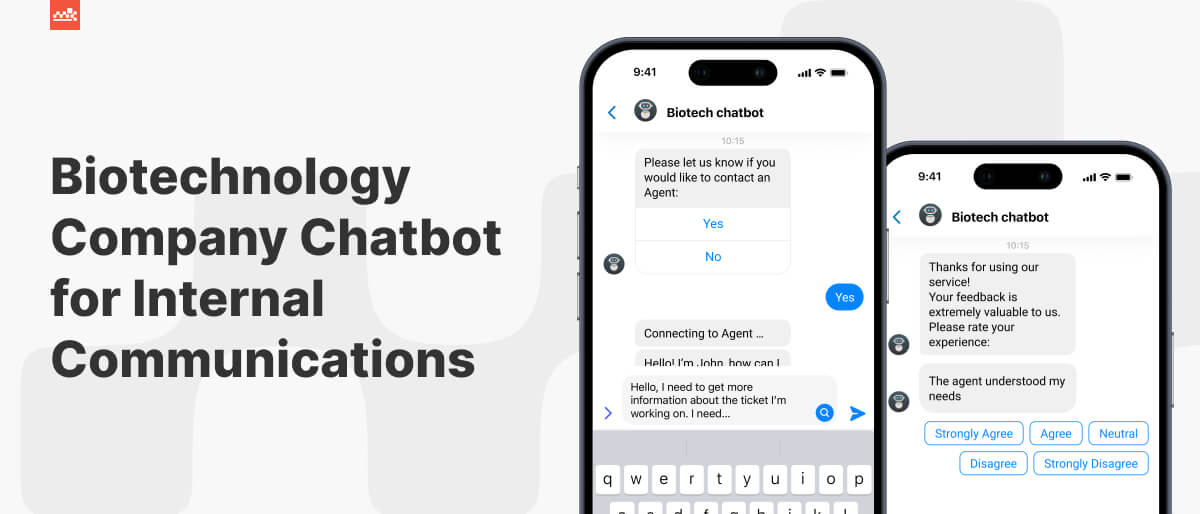
Automated Content Creation
Generative AI in sales is crucial for content generation. It writes personalized email subject lines, which are known for boosting open rates by a remarkable 27%. This tailored approach also drives clicks, resulting in an 11% increase in the click-to-open rate. Furthermore, sales can use LLMs to draft engaging blog posts and suggest social media copy for specific audiences, saving teams valuable time. As a result, representatives focus on refining their messaging, injecting their expertise, and building long-lasting relationships.
Personalized Sales Training
Generative AI also upgrades coaching, ditching generic methods for tailored self-development. It delves into individual rep performance, highlighting strengths and pinpointing areas for refinement. Here’s an overview of the main AI functions:
- Targeted skill-building: Generative solutions examine call transcripts, emails, and productivity data. They then reveal minor nuances, like a tendency to use closed-ended questions or missed opportunities for upselling. Eventually, instead of broad-brushed training, the company can target specific gaps.
- Bespoke development plans: Based on an individual’s needs, the technology also suggests adjusted learning paths. This might involve skill drills, curated content, or simulated practical situations that directly address one’s weaknesses.
- Dynamic roleplaying sessions: With AI, managers generate realistic customer profiles and challenging scenarios to adapt their communication styles. Sales specialists get instant feedback, allowing them to refine their approach in real-time.
Overall, AI-driven training generates quantifiable results. By monitoring reps’ improvement against key metrics, an organization can pinpoint the direct impact of the learning initiatives. This ensures continuous progress and a solid ROI on the investment in coaching.
Lead Nurturing and Engagement at Scale
Companies using artificial intelligence orchestrate prospect relationship management programs at an unprecedented scale. It analyzes lead behavior and demographics to craft tailored email sequences, social media interactions, and targeted content delivery. To maintain a human touch, chatbots, and virtual assistants can join the effort. These digital tools answer FAQs 24/7, qualify leads, and even schedule appointments. This comprehensive AI-powered approach streamlines the nurturing process, boosts engagement rates, and ultimately drives sales growth.
For example, an electronics retailer uses an Apple Messages for Business bot to provide product support and facilitate purchases. This interactive agent understands customer queries and offers relevant recommendations. The results are impressive:
- 80% CSAT score;
- 84% engaged session rate;
- ~$300 average order value.
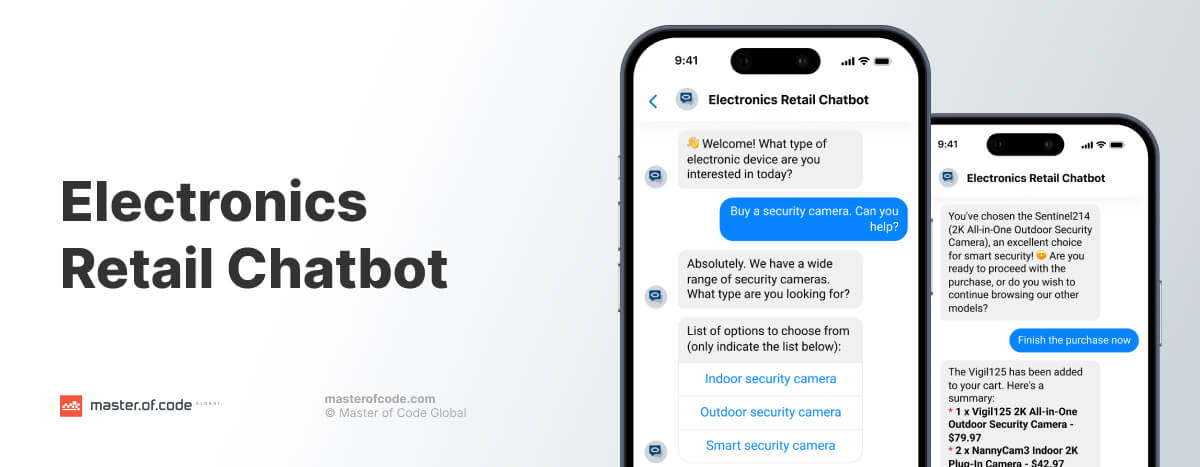
AI in Sales CRM
The integration of Generative AI in marketing strategies drives seamless customer relationship management. This transformation directly empowers the sales team through AI-powered CRM automation. The technology analyzes vast datasets, segmenting leads based on behavioral patterns. Managers can fuel personalized outreach, tailored offers, and proactive engagement at precisely the right moment. Predictive analytics even pinpoint potential risks, allowing salespersons to take action before customers drift away. This transforms a CRM into an intelligent engine for nurturing lasting, profitable relationships.
In the End…
Building on these points, it’s evident that artificial intelligence is no longer a luxury; it’s a necessity for businesses that want to stay competitive. This technology transforms your team into a high-performing machine, boosts conversation rates, and drives revenue. Considering the ongoing progress in the technological sector, now it’s the right time to adopt AI sales automation.
Don’t get left behind – let Master of Code Global be your trusted tech partner. As a leader in AI development services, we can help you boost your performance and achieve unprecedented top-line growth. Let’s discuss your vision for the future of sales and develop a strategic roadmap to get you there.
Let us help you connect your brand with customers where they communicate today. Chat or voice.






